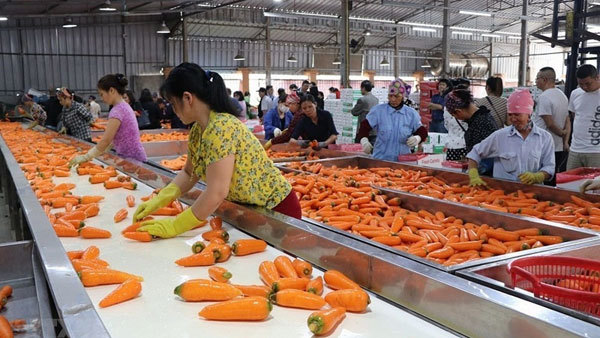 |
| Processing carrots for export. (Photo: VNA) |
Under the rules that will take effect from February next year, the total number of standard working hours and overtime hours may not exceed 12 hours per day or 72 hours per week.
Total overtime hours are capped at 40 hours per month and 300 hours per year.
Workers are permitted to take a break for at least one day (24 continuous hours).
If the weekly break is not possible to provide when meeting export orders during the peak season, employers must ensure at least 4 days off in a month for their employees.
The new regulations apply to seasonal jobs in agriculture when it is required to harvest mature products immediately or process products immediately after harvesting.
They are also applicable to manufacturing jobs that depend on the time when orders are made.
Source: Nhan Dan

Labor Ministry proposes allowing an increase in extra working hours
The Ministry of Labor, Invalids and Social Affairs (MOLISA) has proposed increasing the yearly maximum extra working hours as a solution to help enterprises recover amid the Covid-19 pandemic.

New trend: working four days a week
A study by the Iceland-based Association for Sustainability and Democracy (ALDA) and the British policy think-tank Autonomy concluded that Iceland's four-day workweek model has been a great success.